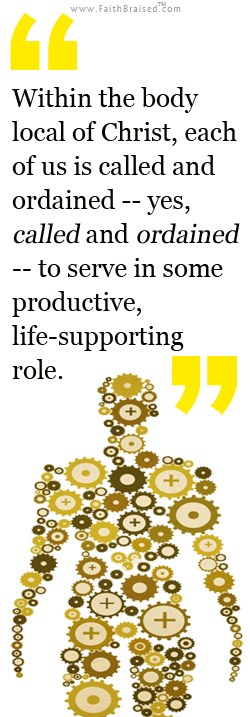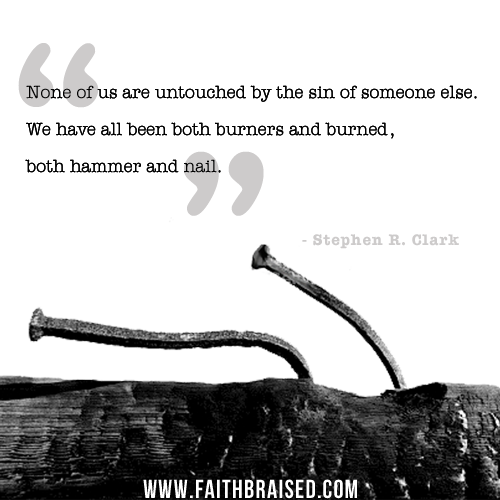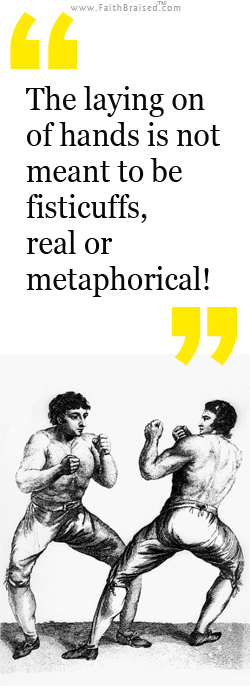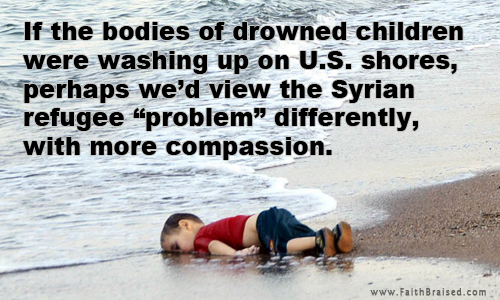Late last year, I completed the Certificate in Theology and Ministry offered online by Princeton Theological Seminary (PTS).* Along with about 120 or so other people who were scattered across the country and the world.
This past weekend, PTS invited all who completed the course to attend a special recognition luncheon and worship service at the Princeton, NJ campus. There was a substantial turnout and the program was outstanding.
While taking the course, and now even more so since completing it, the question I’m asked most often is some variation of this: “Why did you take the course? What are you going to do with it now?”
 Well, I won’t be performing weddings or funerals. It’s not that kind of certification.
Well, I won’t be performing weddings or funerals. It’s not that kind of certification.
But, frankly, I don’t think it’s necessary to pursue learning solely for the purpose of “doing” something with it. The value, joy, and reward is in the learning itself. Especially when it’s affordable and convenient!
When you spend time going to the movies, how would you respond to someone who asks, “So you saw Star Wars. Why? What are you going to do with it?”
I’m assuming you would be a little bewildered by such a question.
That’s sort of how I feel when people ask me about the course.
Honestly, I took the course because I wanted to.
But, since the answer, “I did it because, like Mt. Everest, it was there!” isn’t appreciated, I decided I’d take the time to provide a fuller response. After all, you asked me!
Beyond “because I wanted to” there are at least three broad reasons I took the course. These are also reasons I read books and just keep learning in general, by the way.
In no particular order, here they are:
Honing the craft with which God has gifted me
Among other things, I’m a writer. Most of what I currently write tends to be related to biblical faith.
A lot of Christian writers I know will spend a lot of time reading books on writing, learning how to better market their work, going to writer’s conferences to meet other writers and connect with publishers, and so forth.
The focus of their efforts is on the writing and the selling thereof.
That’s all well and good.
But it’s long been a pet peeve of mine that conferences, courses, and how-to books for Christian writers never include workshops or chapters on developing biblical thinking, understanding the latest trends in theology, practicing practical exegesis, writing from a biblical worldview, or anything that helps improve skills on the Bible / theology / doctrine side of things.
The closest anything comes is offering something devotional or inspirational in nature. That’s nice, but not enough.
Frankly, I don’t see how anyone can be a good “Christian” writer without also having and nurturing a good grasp on all things biblical and theological. And much of what’s needed will not come merely through church attendance, participating in a small group Bible study, or Sunday school. Which, by the way, are thoroughly worthwhile and beneficial endeavors.
A lot of what I’m “going to do” with this learning that I’ve acquired I’ve been “doing with it” through my blog and other writing opportunities. Not to mention in non-writing interactions with others.
I guess you could say that by the time I completed it, the Certificate was already “used.”
Someone might say, “But you’ve got a college degree in English and biblical studies, why do you need this?”
Because no skill, talent, or gift is a “once and done” thing. They require ongoing refreshing.
Years ago when I was an editor of a Christian magazine and living near Chicago, Wheaton College offered a series of workshops aimed at writers. One of the presenters was Peter Jacobi, now professor emeritus of journalism at Indiana University.
He used the acronym AIDA, also the title of an opera, to cover a few key elements of writing effective articles: Attention, Interest, Desire, Action. What he offered I already knew but had never heard presented like this.
This “new” take on “old” information injected fresh insight into my thinking that helped me improve my writing.
The same principle holds true with ongoing, continuing Christian education.
Just as you can never eat or drink “once and for all”, the same holds true for all learning.
Studying to show myself approved
2 Timothy 2:15 states plainly that, as Christians, we need to study God’s Word and know how to rightly divide it (aka interpret and apply) to show ourselves approved.
I like the Common English Bible (CEB) that states, “Make an effort to present yourself to God as a tried-and-true worker, who doesn’t need to be ashamed but is one who interprets the message of truth correctly.”
We are also instructed to “work out” our own salvation (Philippians 2:13), to understand God’s will for us (Ephesians 5:17), to stand against the devil and his tactics (Ephesians 6:10-18), to be ready with an answer for our hope (1 Peter 3:15), to be prepared “in season and out of season” (2 Timothy 4:2), and on and on.
Like learning in general, the Christian life is not a “once and done” experience. It’s a process of ongoing growth and maturity.
While some are satisfied with what they can pick up from a Sunday sermon or the Christian radio station, I’m not.
As that great raspy-voiced theologian, Bob Dylan, once said, “He not busy being born [again] is busy dying” (my paraphrase).
And so I keep reading, studying, discussing, and listening.
There is always more to learn, more understanding available, more insight to be gained.
One very useful aspect of the Certificate course was the global perspective it captured. Some of this came through the various participants located around the globe (Hong Kong, Greece, Europe, etc.).
Part came through the final module on “Understanding World Religions” which provided a gentle smack-up-side-of-the-head reminding us that our cultural experience is not the same as anyone else’s.
Well, duh.
If you don’t think that how you understand the Bible or view God is not influenced in anyway by where you were born, where you live, how you were parented, the education you received, and on and on, then you are as naive as I have been.
An amazing insight that comes through this is, despite such massive diversity of experiences, the same Holy Spirit lives in each follower of Jesus and makes the one true God alive and visible through us around the globe.
Cool.
I sing the body local & so should you
An essential, yet too often neglected, element of the Christian life is being in fellowship with other Christians.
The Bible characterizes the entire fellowship of believers as “the body of Christ.”
Often, churches are referred to as the local body of Christ. However, no single church, or even denomination, embodies the whole body of Christ. Every church is a local expression of the whole body of Christ.
So, I prefer to refer to your church and my church as “the body local.”
This means that not only does each Christian play an essential role in the whole body, so does each biblically orthodox church, whether tiny rural country fellowship or ginormous city mega-thing.
The body metaphor is interesting (1 Corinthians 12). Paul posits that each true believer is a body part that (1) is essential to the body as a whole, (2) dependent upon every other part, and (3) never is dishonorable, regardless of function or purpose.
The implication is that for the body to work well, each body part (organ, limb, etc.) must be healthy and efficient.
To be healthy requires nourishment and cohesion. In other words, it must be fed and connected.
Within the body local of Christ, each of us is called and ordained -- yes, called and ordained -- to serve in some productive, life-supporting role.
As disciples of Christ, we’ve all got jobs to do.
At the most basic level, all of us are called and ordained to be present. To show up. And to give financial support to the body local where God implants us.
But that’s not enough. All that stuff I mentioned previously about working out our salvation, showing ourselves approved, and so on, is to be done within the body local, in fellowship with the other body parts.
The body local is a “Head and shoulders, knees and toes. Eyes and ears, mouth and nose” kind of thing.
So, we are to avoid “staying away from our worship meetings, as some habitually do” (Hebrews 10:25) and encourage each other in the faith (1 Thessalonians 5:11), even when that involves iron sharpening iron (Proverbs 27:17).
Because I take this fact of the Christian life seriously, whatever church I’ve been a part of, I’ve always sought to be actively involved. This was the example of my parents that my sister and I witnessed and inherited as their legacy. Our entire immediate family, as well as many cousins, aunts, uncles, and other relatives, were always very active in the church of our youth.
I guess it’s in our DNA!
The shape of my own involvement and how that involvement unfolds is influenced by how God has made and gifted me combined with the needs of the body local into which I have been grafted.
Over the years, these roles have included Sunday school teacher, men’s group leader, Sunday school superintendent, janitor, small group leader, board member, special projects committee member, Scout troop leader, administration support, PR and communications helper, bulletin maker, newsletter writer and editor, web designer, periodic giver of sermons, sound booth operator, graphics maker, Powerpoint manager, usher, greeter, and so on.
So, understanding that wherever God puts me I will be involved in that body local, and knowing that whatever we do we are to do well and for the glory of God (Colossians 3:23-24), ongoing training and education seems appropriate.
Show me the money!
There are those who agree and nod their heads to all this palavering, while thinking, “But when are you going to turn this training into something real? And make money? Or at least have a real title other than ‘freelance writer’?”
Sigh.
I understand that, for many, the whole point of any education, whether a multi-year degree at the cost of thousands of dollars, or a several month certificate at the cost a few hundred, is to “do” something specific (aka, get a job and produce income).
I get it. Although I don’t entirely agree with it. But I’m not going to argue the points here.
I pursued the Certificate for all the reasons I’ve stated. I’ve long wanted to get a Masters, preferably in Theology or something related, but the timing and the funds would never synch up.
So, when I discovered this Certificate program, I pounced.
I did not have a specific monetizeable outcome in mind then, nor do I now. If I’m never able to point to specific income derived as a direct result of investing my time and money in this Certificate program, it will not have been a waste of either.
Some will get it. Some won’t.
Those who get it should consider signing up the next time this Certificate program comes open.
For those who don’t get it, don’t worry. I’ve added this accomplishment to my Linkedin profile.
I challenge you, dear reader & you, too, institutions of learning!
One thing that I hope comes of my effort: that it serves as a positive example to you, dear reader, to pursue more and dig deeper when it comes to God’s Word, doctrine, theology, and related subject areas.
Search for local and online opportunities to take a course, even for a few weeks.
Or read books. Not sure where to start? Try these Christianity Today award-winners: “Christianity Today's 2016 Book Awards.”
Take what you already know and apply it where you are. One way to learn more is to be involved in your body local. A lot of good things can come from active small group participation.
But I also want to issue a challenge to all Christian colleges and universities.
We need more affordable, accessible, online programs like the one offered by PTS. Their program is specifically aimed at laypeople who are ministering in the body local and who are hungry for accessible, affordable training.
These people can’t afford to leave their jobs and homes, pay thousands and thousands of dollars, all to earn a degree. That’s expensive overkill.
What they need is more of what is represented in the Certificate* program I completed.
It needs to be very affordable, only a few hundred dollars. Very practical, nothing egghead or ivory tower. Very accessible, online using readily available free software and inexpensive tools. And, of course, engaging, using personable professors who can connect well in an online context.
If you represent a Christian college or university and are interested in setting up a program, contact me and I’ll connect you to the people at PTS. And I’ll be happy to share my ideas.
And that’s all I have to say about this. For now.
Aren’t you sorry you asked?
=======
 Are you active in a church? Do you feel adequately trained or not? What kind of training would you like to be able to access? Have you participated in any kind of continuing education program online or in a classroom? How was your experience? Do you agree with my assertions in this post, that all Christians are called and ordained to be involved in ministry? Why or why not? Please share your thoughts and reactions in the comments!
Are you active in a church? Do you feel adequately trained or not? What kind of training would you like to be able to access? Have you participated in any kind of continuing education program online or in a classroom? How was your experience? Do you agree with my assertions in this post, that all Christians are called and ordained to be involved in ministry? Why or why not? Please share your thoughts and reactions in the comments!
* The course consisted of 6 modules: Old Testament Resources for Faith and Life, New Testament, Forgiveness and Reconciliation, Theology for Faith and Life, Pastoral Care, and Understanding World Christianity (this final module was slated to be Congregational Leadership, but had to be changed due to an unforeseen scheduling conflict with the professor).
Over the year, there were 30 live two-hour lectures, assigned readings, and the writing of short “class blog posts” of 100-200 words, as well as six 400-600 word “final” essays for each module.
Everyone signed on, using Adobe Connect, to listen to the lectures. We could comment and ask questions in the chat box. Some students who chose to were connected to ask questions via video.
For the written assignments, we were assigned groups of around 12 or so that rotated every 10 sessions. Only those in our assigned groups saw our posts. Each of us was required to comment on 3-5 posts of other students.
While admission to the course is closed for 2016, I would encourage everyone to sign up for next year.
 Are you in a good small group or any group? What makes it a good group or a not so good group? Do you have other good ideas for creating good small groups? Please share them in the comments!
Are you in a good small group or any group? What makes it a good group or a not so good group? Do you have other good ideas for creating good small groups? Please share them in the comments!

















